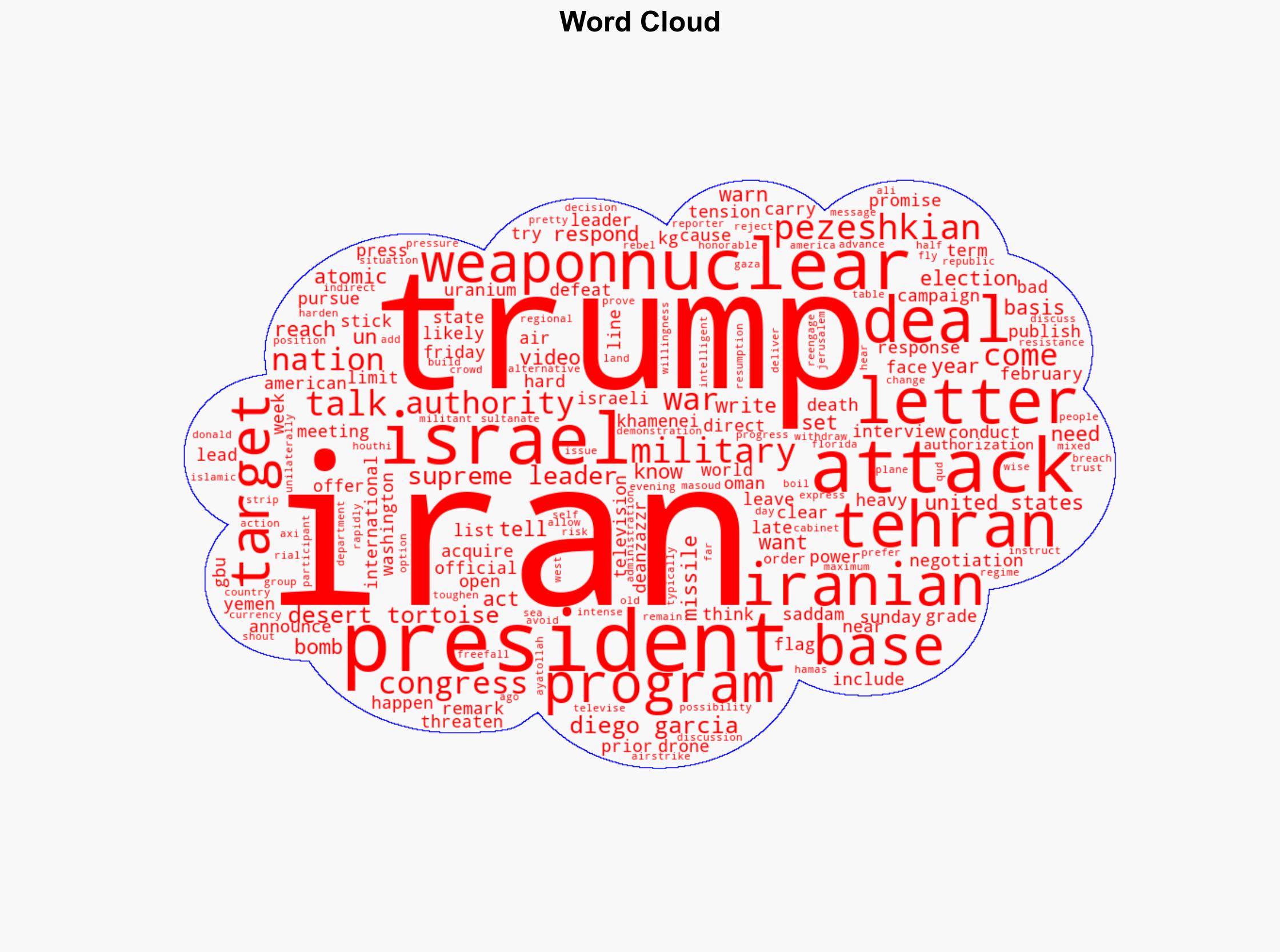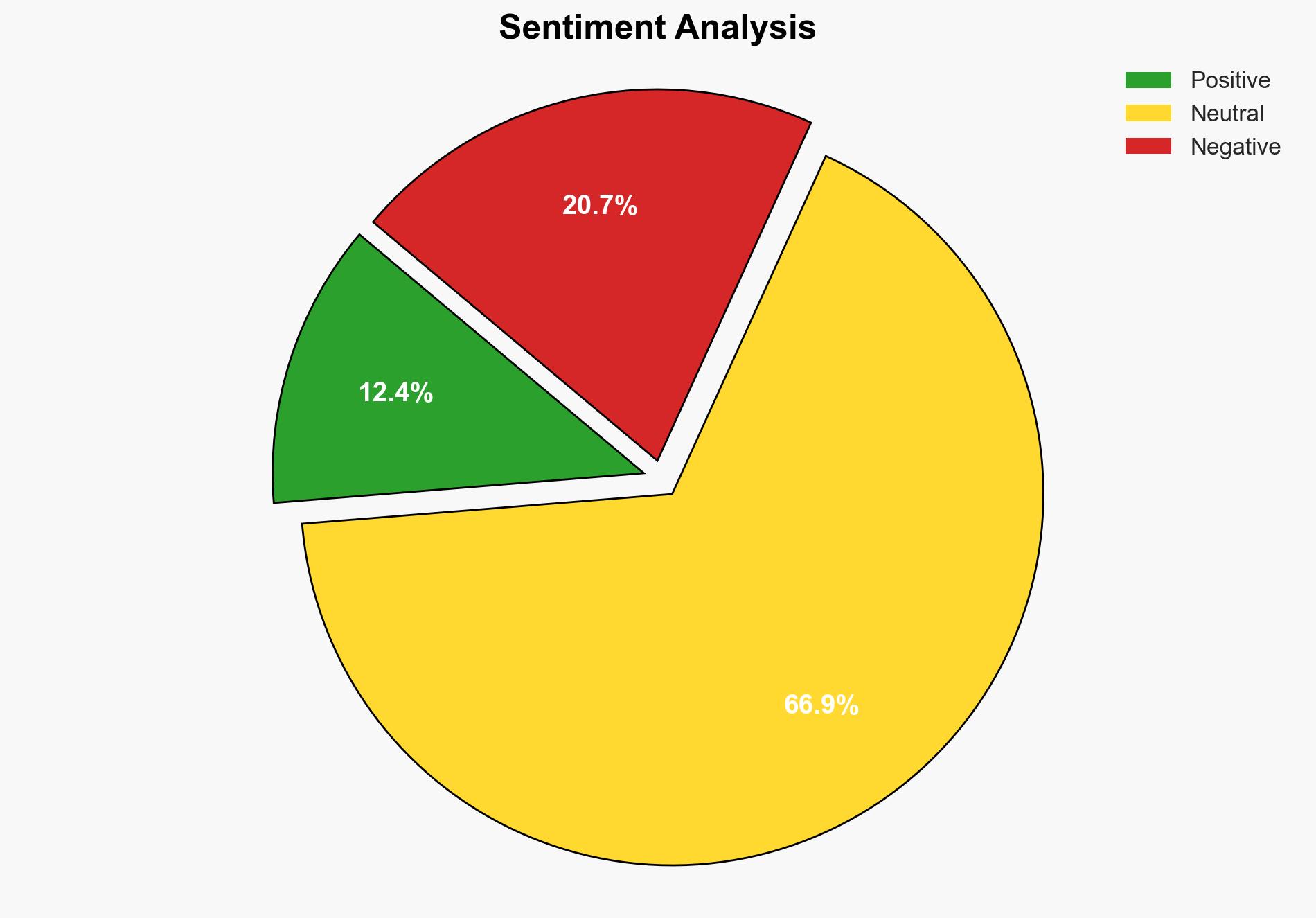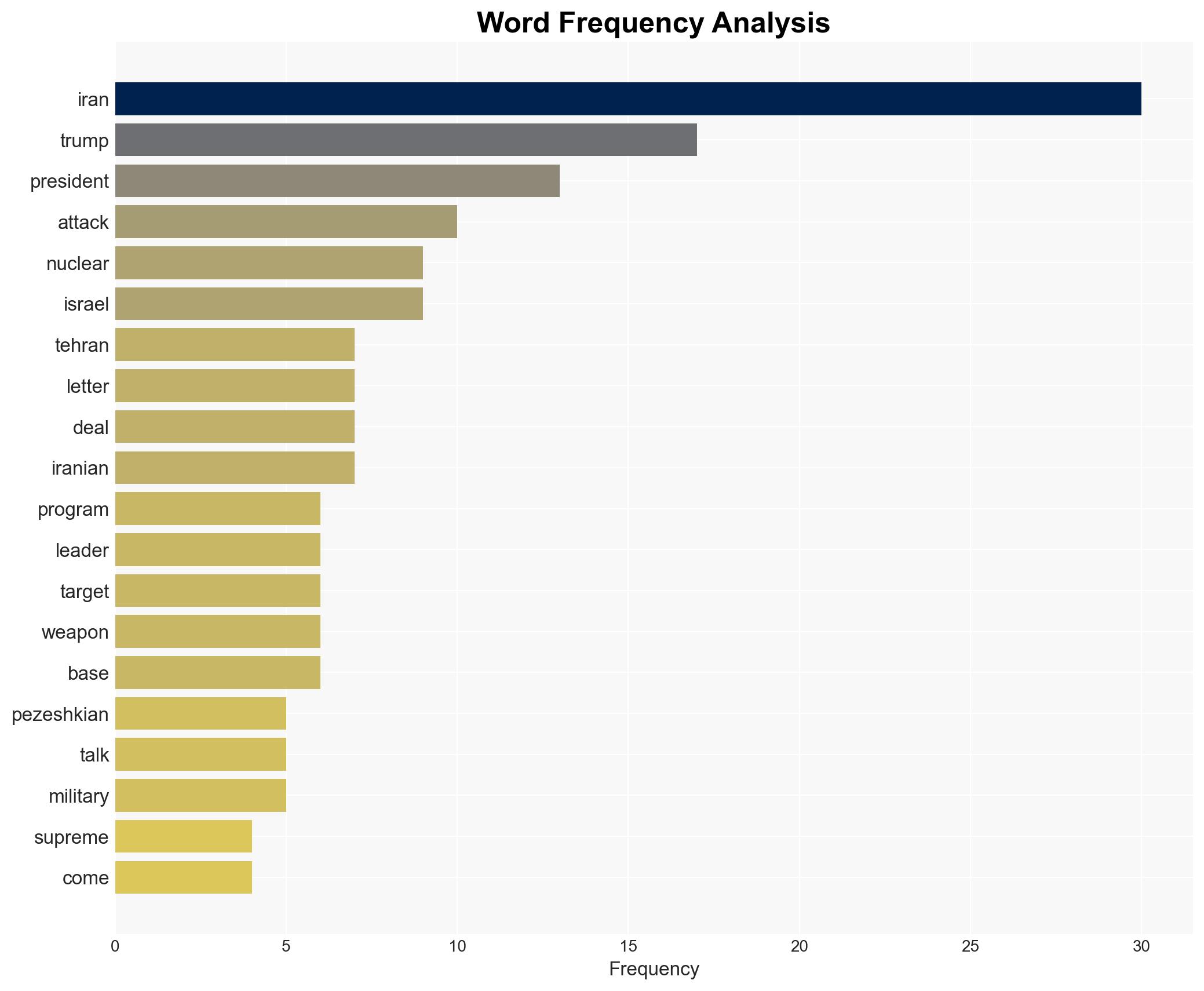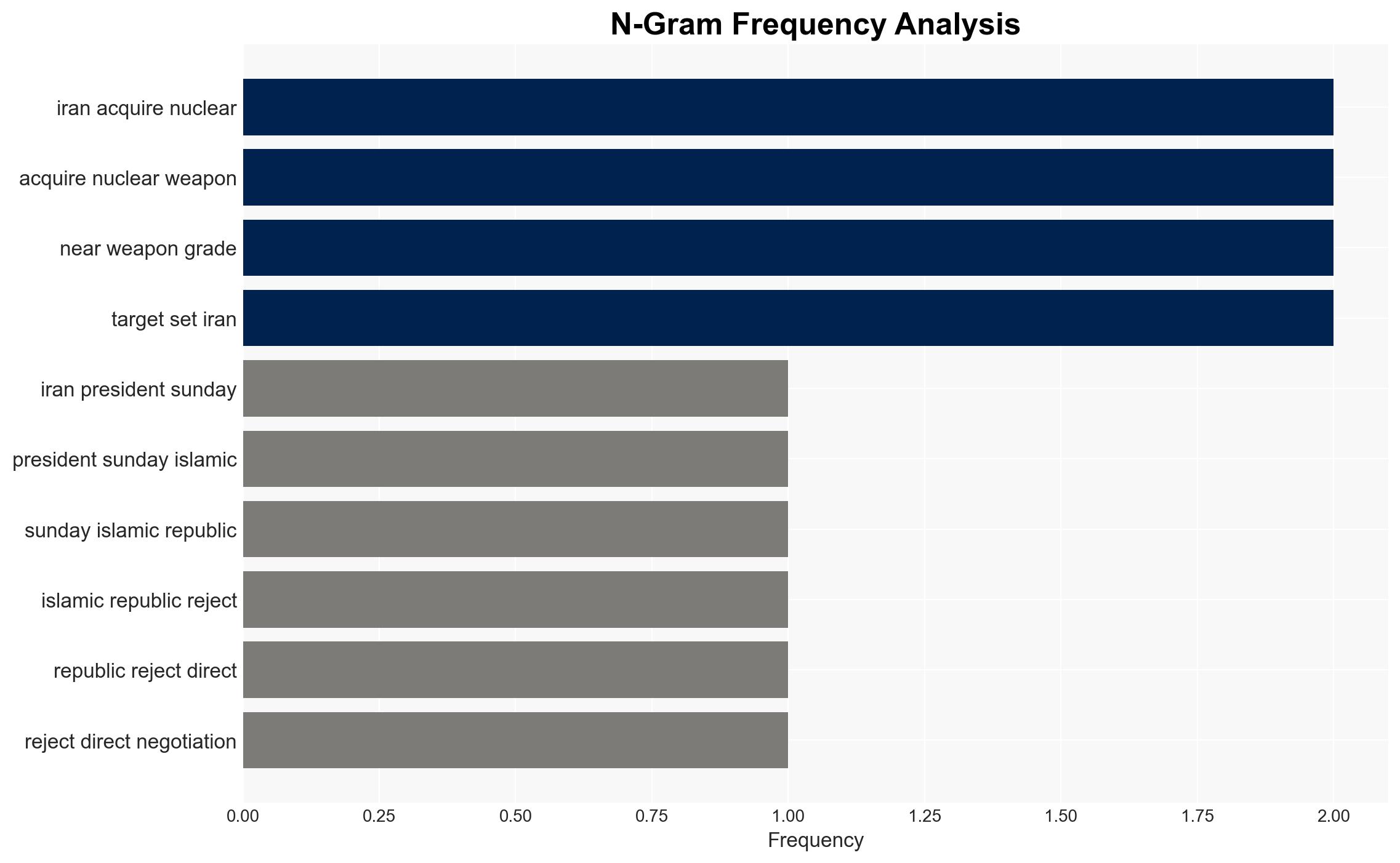Iran rejects direct negotiations with US in response to Trump’s letter – Japan Today
Published on: 2025-03-30
Intelligence Report: Iran rejects direct negotiations with US in response to Trump’s letter – Japan Today
1. BLUF (Bottom Line Up Front)
Iran has rejected direct negotiations with the United States following a letter from Donald Trump. The decision underscores Iran’s strategic posture of advancing its nuclear program while leaving open the possibility of indirect negotiations. This development heightens regional tensions, particularly in the context of ongoing conflicts involving Israel and Iranian-backed groups.
2. Detailed Analysis
The following structured analytic techniques have been applied for this analysis:
General Analysis
Iran’s rejection of direct talks with the US is a calculated move to maintain leverage in nuclear negotiations while signaling openness to indirect dialogue. The decision aligns with Iran’s broader strategy of resistance against US pressure, particularly following the US withdrawal from the nuclear deal. The geopolitical landscape is further complicated by regional conflicts, including the Israel-Hamas war and tensions in Yemen, where Iran’s influence is significant.
3. Implications and Strategic Risks
The refusal for direct negotiations increases the risk of military confrontation, as both nations maintain aggressive postures. Regional stability is threatened by potential escalations in Israel and Yemen, where Iranian-backed forces are active. Economically, continued sanctions and currency devaluation pose significant challenges for Iran, potentially leading to domestic unrest.
4. Recommendations and Outlook
Recommendations:
- Encourage diplomatic channels to facilitate indirect negotiations between the US and Iran, potentially through intermediaries like Oman.
- Enhance intelligence-sharing with regional allies to monitor and mitigate potential military escalations.
- Consider economic incentives or relief measures to stabilize Iran’s economy and reduce domestic pressures.
Outlook:
Best-case scenario: Indirect negotiations lead to a de-escalation of tensions and a new framework for nuclear discussions.
Worst-case scenario: Increased military confrontations in the region, leading to broader conflict involving multiple state and non-state actors.
Most likely scenario: Continued stalemate with sporadic indirect engagements and persistent regional tensions.
5. Key Individuals and Entities
The report mentions significant individuals and organizations but does not provide any roles or affiliations. Key individuals include Donald Trump, Masoud Pezeshkian, Ayatollah Ali Khamenei, Mohammad Bagher Qalibaf, and Shinzo Abe.





